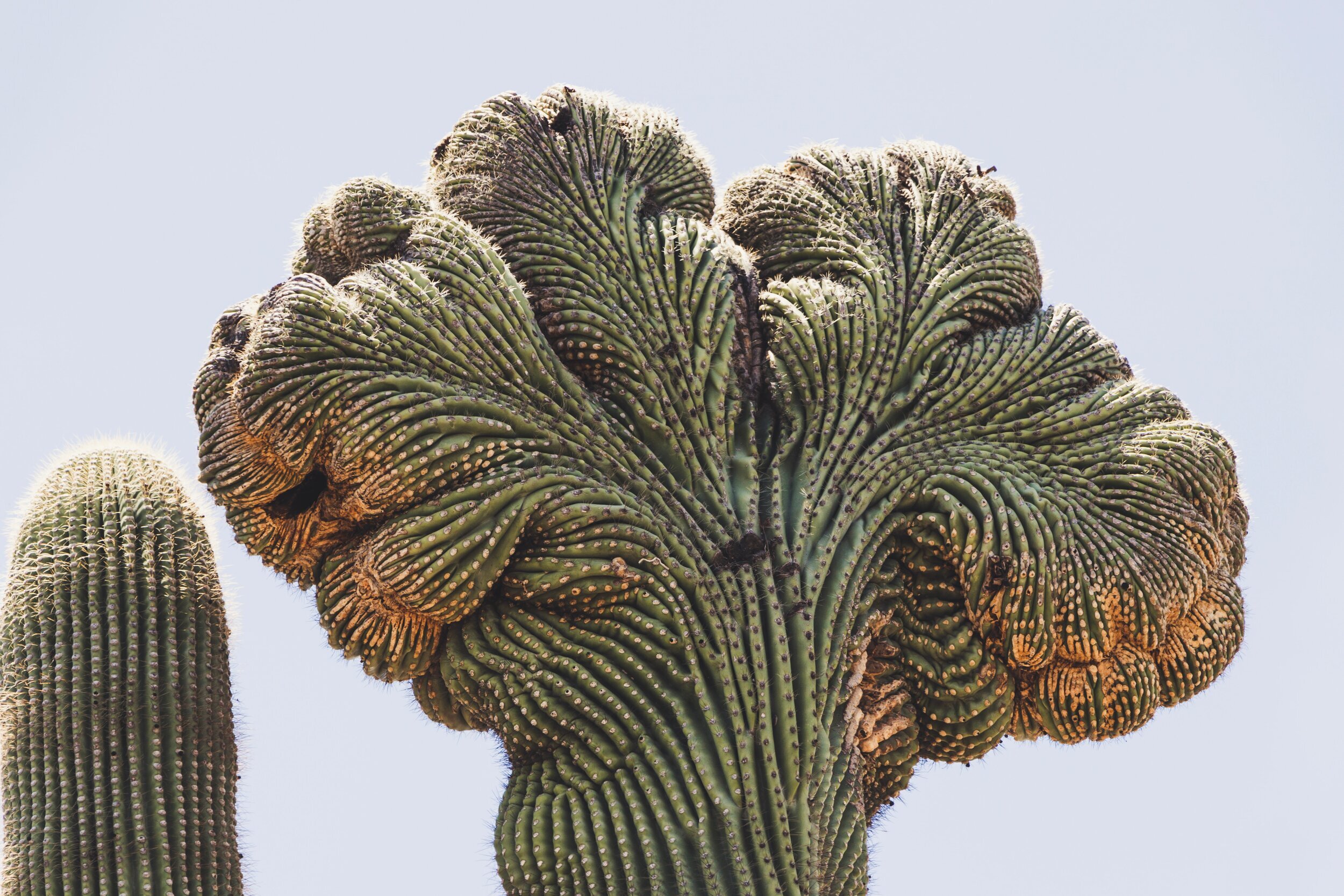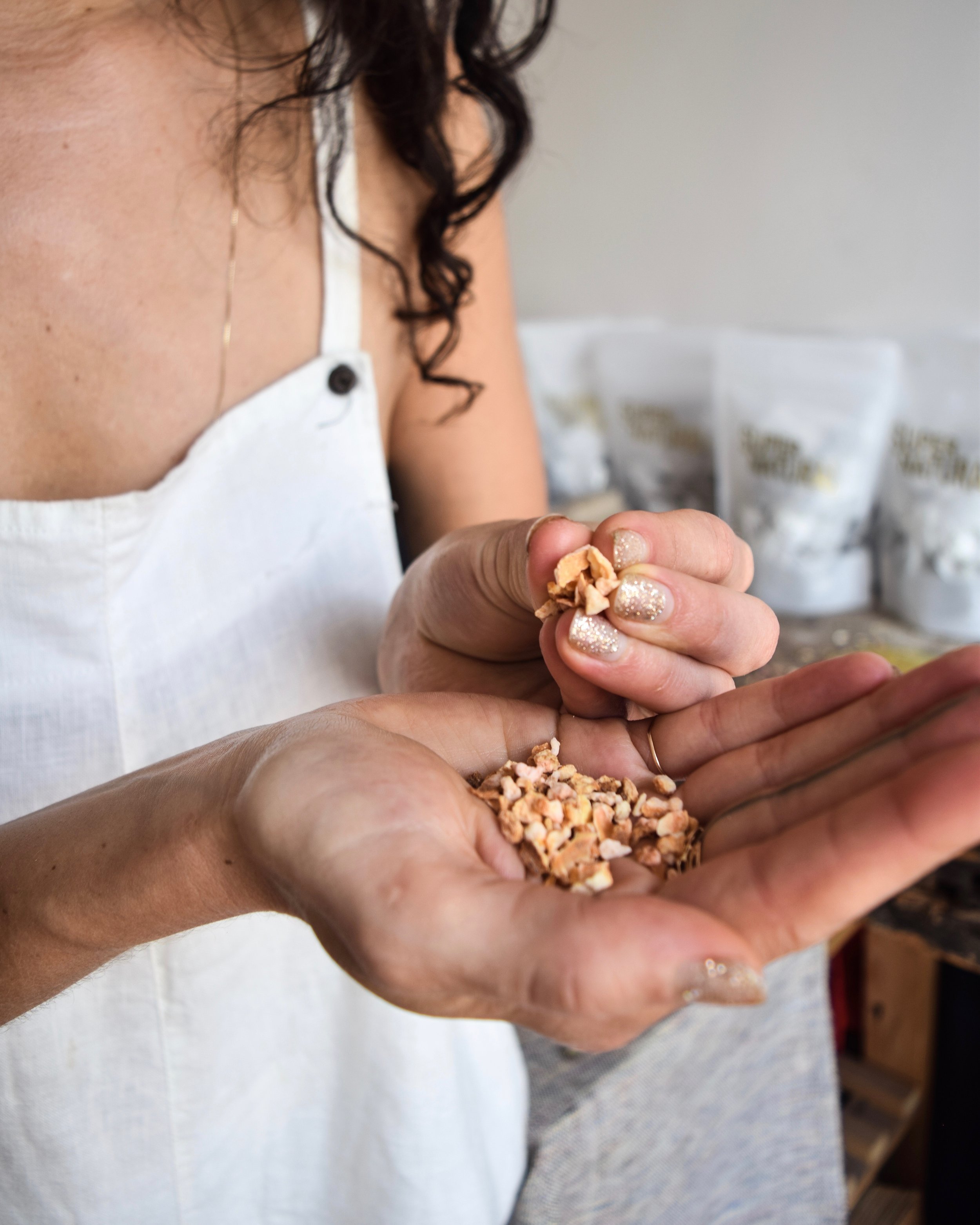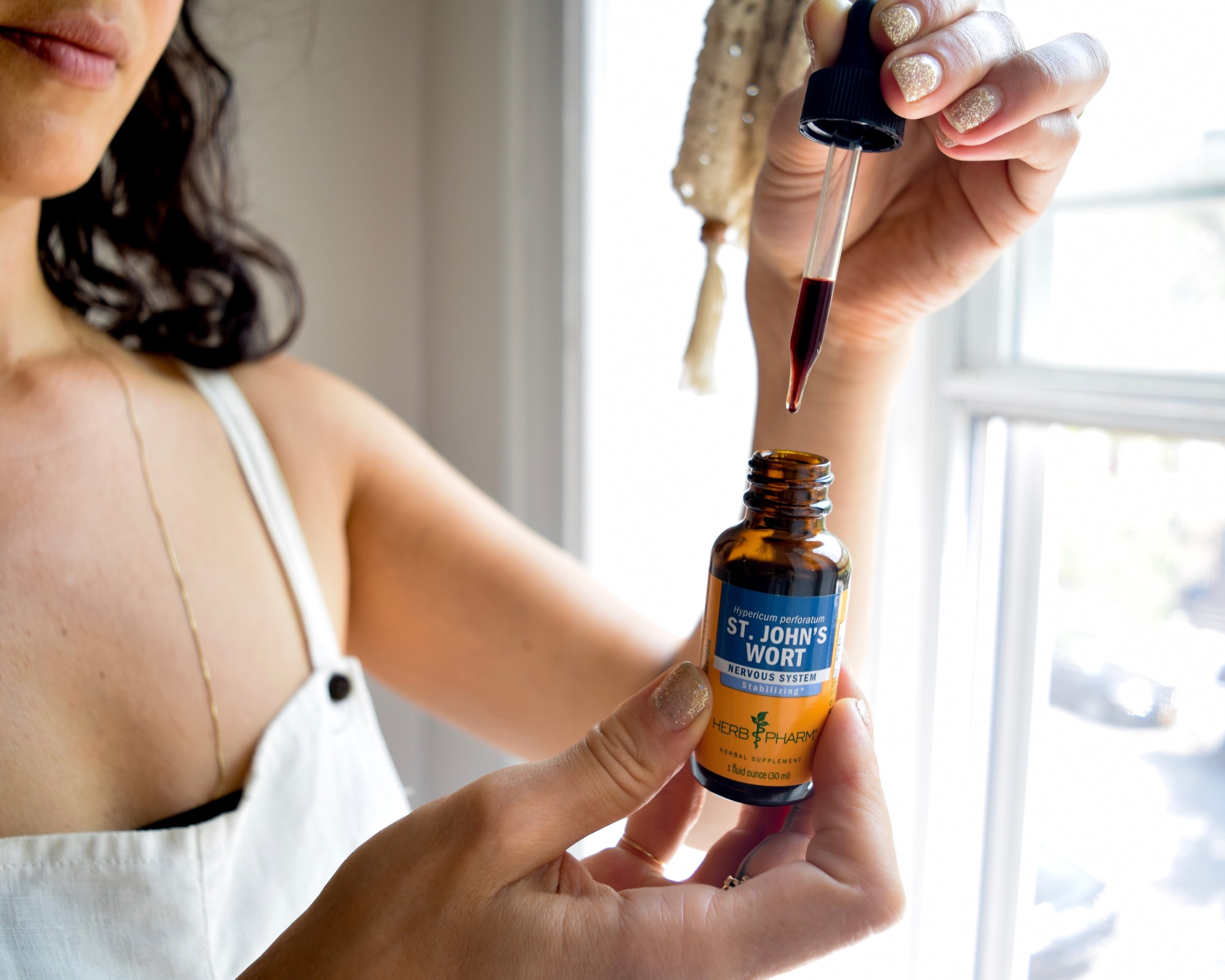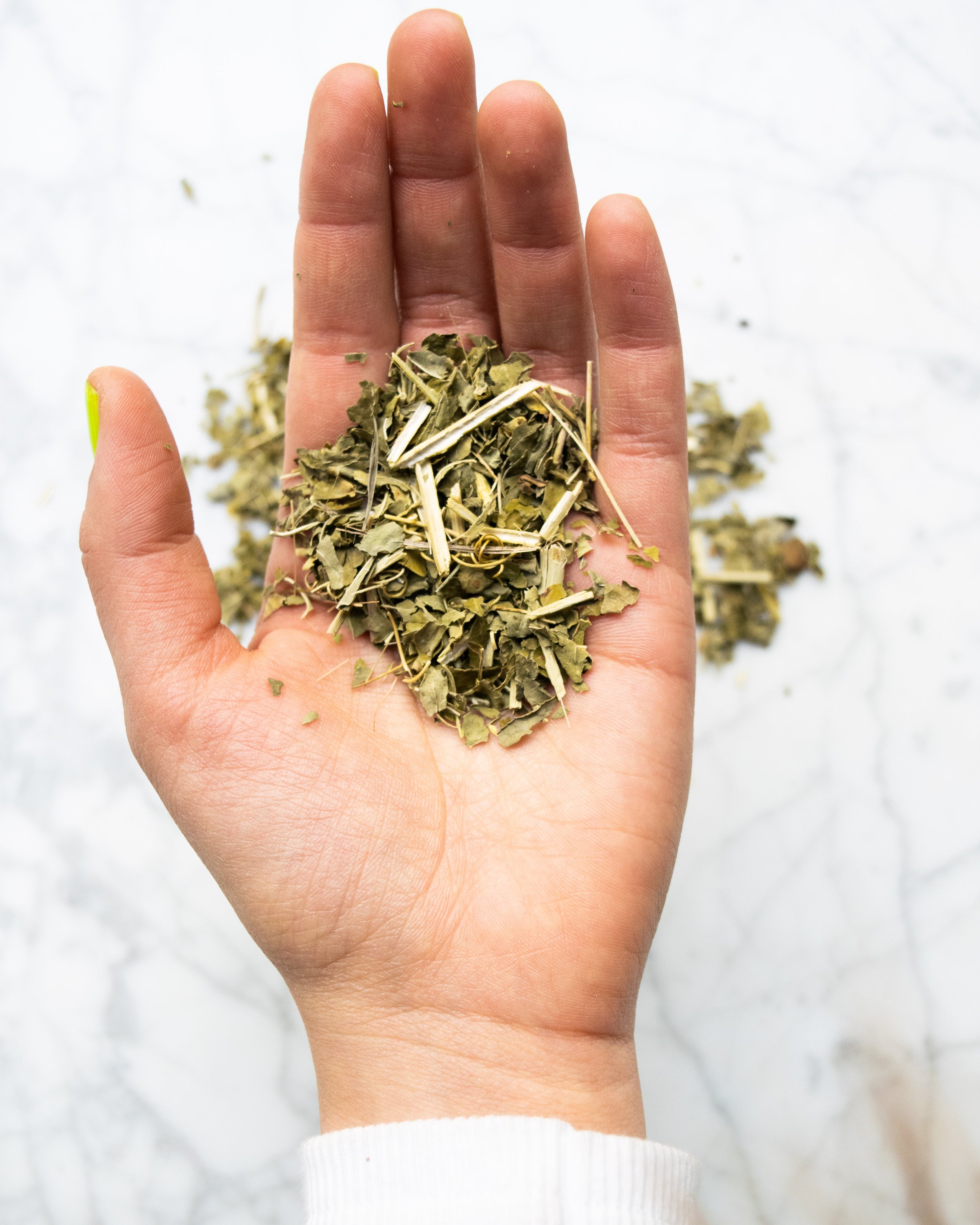Your Brain on Herbs: Neurotransmitters, Nootropics, & Nature's Pharmaceuticals for Mental Health
The subjects of brain health, neurochemistry and how what we consume (through any sense) affects our experience of life is, as you likely know by now, dear to my heart both personally and professionally. I've written more than several times about neurotransmitters' effects on our daily lives – from fasting to increase dopamine production to early highlights of science's understanding of mental disorders stemming from our stomachs. It’s an important conversation and one I continue to follow closely.
While “positive” emotions are something we spend a great deal of time pursuing, the lows are just as essential to who, how and why we are as we are.
In terms of what influences how we feel, both nature and nurture are at play. Personal histories, environmental factors, diet and lifestyle, chosen or learned psychology (thought processes) all effect our brain chemistry. Even medications edit the brain chemistry that in turn creates feelings, thoughts and behaviors we’re typically looking to modify.
Antidepressant and mood altering medications do not change negative behaviors or feelings, the effect they have on our brain chemistry is what changes them. This means that changing our brain chemistry is what changes our feelings and behaviors. The assumption that we need medications to do this is faulty thinking.
For those who can work without (or with less) medication, the safest, healthiest and longest-term method of modifying unhealthy or undesirable brain activity is via nutrition, herbs and lifestyle. “Herbalism” is fundamentally holistic. Meaning, nutrition, supplements and lifestyle are all part of a great herbal protocol. Simply drinking herbal tea or popping the all-natural pills isn’t enough; we must lay the foundation for all-around health in order for our actions to work, and stick.
A key to using herbs and foods to create healthy brain chemistry lies in knowing which specific brain chemicals need to be enhanced or reduced, and what herbs and foods, activities and attitudes will do that.
A bit of brain chemistry …
The mediators of mood are neurotransmitters. When neurotransmitters become imbalanced it causes a variety of psychological conditions, including sadness, compulsive thoughts, inability to concentrate, mood swings and depression.
Neurotransmitters are hormone-like chemicals (and some hormones) that work on the central nervous system and affect not only the brain, but the entire body. Neurotransmitters are messenger chemicals that create feelings, stimulate thoughts and trigger memories. While there are many more neurotransmitters to know, these are three that receive a lot of attention and are worth understanding essentially:
Serotonin: Key words are well being and peacefulness. Serotonin boosts feelings of optimism, self esteem, relaxation, and security. Adequate levels ensure good concentration and deep sleep. The more serotonin you have, the less pain. And, the great majority of serotonin is made in the gut! Hence the importance (and I mean importance) of Gut Health for brain health, mood, focus, stress and anxiety relief and so much more.
In coaching sessions with clients, I talk a lot about the relationship between serotonin and sugar or carb cravings. Commonly, in women, premenstrual hormone fluctuations (or overall hormone imbalances) cause serotonin to drop, which can result in cravings. Carbohydrate-rich foods cause our bodies to create serotonin! So, we don’t crave the carbs as much as we crave serotonin.
Dopamine - and its derivative, norepinephrine - are considered a single chemical. This is the energizing, “gas petal” chemical that promotes increased feelings of alertness, wakefulness, assertiveness and aggressiveness. This chemical heightens energy, speeds up thoughts and improves muscle coordination. Too much norepinephrine causes anxiety and aggression, stimulates violent behaviors, and causes schizophrenia, paranoia and psychosis.
One of the most powerful and fastest ways to alter these neurotransmitters is via your herb and food choices.
Foods rich in protein boost dopamine and norepinephrine within minutes, causing increased alertness, speeding up thoughts, and increasing assertiveness. Beans and legumes, fermented soy like tempeh and miso, and beverages like coffee (found to speed up transmitters, speed thoughts, improve reaction time and mental functioning and enhance mood after a 20 year study), black tea, green tea and milk all boost dopamine and norepinephrine. Seeds and nuts such as sunflower, pumpkin and milk thistle also boost dopamine and norepinephrine levels.
Herbs that can help raise dopamine levels include ginseng, nettles, red clover, fenugreek, dandelion and peppermint.
One of my favorite herbs for dopamine support is Mucuna Pruriens, otherwise known as “dopamine bean.” I use this along with a nootropic supplement as part of my daily morning routine, along with a little bit of herbal coffee and MCT oil and believe it’s contributed significantly to the actual erasure of my lifelong generalized anxiety and panic disorder.
Activities that enhance these “gas pedal” neurotransmitters include listening to great music, dancing (and any rush of activity), exciting sports, being active outdoors - especially in the sun - and sex.
Foods high in complex carbohydrates can help boost and sustain serotonin levels, however I don’t recommend relying on food for this purpose. Most of my clients are working hard to replace comfort food with healthier choices and the trap of eating for serotonin release can quickly becomes an addictive cycle that’s difficult to break from.
That said, when choosing carbs, choose great ones! Fruit - fresh or dried and fresh vegetables, especially roots, squashes, pumpkins … Apples are noted for bringing oxygen to the brain and being rich in complex carbohydrates and B vitamins, critical nutrients for balanced serotonin levels. Cacao (100% if possible please!) contain PEA, called the molecule of love, and enzymes that prevent the breakdown of anandamide, otherwise known as the “bliss molecule.” Cacao also contains a central nervous system stimulant (theobromine) which can act like a natural antidepressant.
Some herbs that help boost serotonin levels include oatstraw, which is high in B vitamins, and the roots of angelica, burdock, dandelion, ginseng, wild yam, black cohosh, cannabis and so many more.
In addition to food and herbs, consider sunlight or a SAD lamp if you live somewhere dark (or even if you don’t). Sleep is essential for neurotransmitter balance so syncing your circadian rhythms and getting enough, on a regular schedule, is as important as medication. Perhaps even more important: Exercise.
Excerpted from the full list in Brain Health & Nootropics, here are some of my favorites…
Herbs for Brain Health
Oat straw is a restorative, nourishing nervine herb and high in B-vitamins which are important for those with generalized anxiety or an especially taxed nervous system. Oat straw is also known for soothing low mood, sadness, or grief - especially if caused by stress. (Oat seed extract is a key ingredient in our herbal gummies, HRBLS.)
Lavender is well studied as an antidepressant, tranquilizing and stress relieving herb. I refer to it as a plant for peace. (Lavender and skullcap, below, are also ingredients in HRBLS.)
Skullcap is one of nature’s finest nervine herbs - an herb used before we had pharmaceutical tranquilizers, for deep calm and sleep. Some of the active compounds in skullcap bind to the same receptor sites in the brain as benzodiazepines, giving this plant the closest natural action to Xanax that I’ve found yet.
Sage may inhibit the breakdown of acetylcholine, thus protecting against Alzheimer’s disease. It is also been highly regarded as a brain tonic around the world and for thousands of years.
Rosemary is another excellent herb for the brain - especially known to increase alertness, circulation, strengthen memory and acts as an all-around brain tonic. “Rosemary for remembrance!”
Ginkgo can help bring blood to the brain, improve mood and sociability, sharpen concentration and intellect, and eases tension and anxiety. This is a classic herb (tree) for bran health that’s been used to that effect for thousands of years.
Ginseng, the epitome of an adaptogenic herb, is rejuvenating, restorative, boosts energy and vitality and is tonic to the brain. Antidepressant, adaptogenic, an excellent ally for anyone under physical, emotional, mental or spiritual stress. Promotes strong nerves, sound sleep, improves memory, clear thinking and enhances concentration.
Angelica can be revitalizing, restorative and offers rich stores of B vitamins, including B12, calcium, magnesium and iron, all necessary nutrients for healthy brain and nervous system functioning.
Lemon Balm is an effective natural tranquilizer and antidepressant. It is anesthetic, pain easing and called a safeguard against senility. Lemon balm nourishes the brain.
St. John’s Wort is a beautiful nervine, effective against mild to moderate depression, alleviating anxiety, insomnia, and irritability and eases pain. It was used traditionally as a nerve-pain reliever before a mood support.
Motherwort may help stabilize emotions and serve as a natural relaxant after (or during) stressful times. I often use it during “happy hour” or prior to high-intensity teaching or speaking engagements.
B Vitamins, omega oils and essential fatty acids, nootropic supplements, intermittent fasting, psychedelics, meditation and more … ! There is much to learn and it’s worth the time and effort. In a world where neurodegenerative diseases are rampant, not only avoiding the worst but planning for the best is entirely possible with some solid bran health best-practices.






